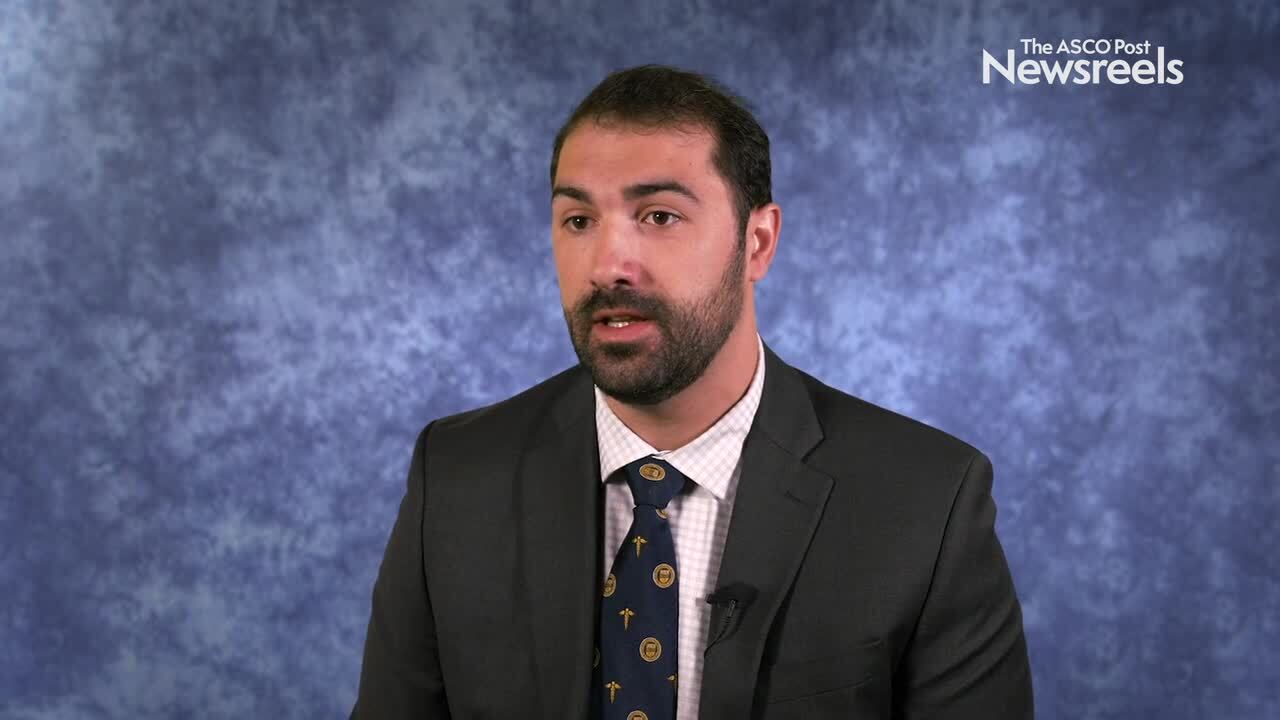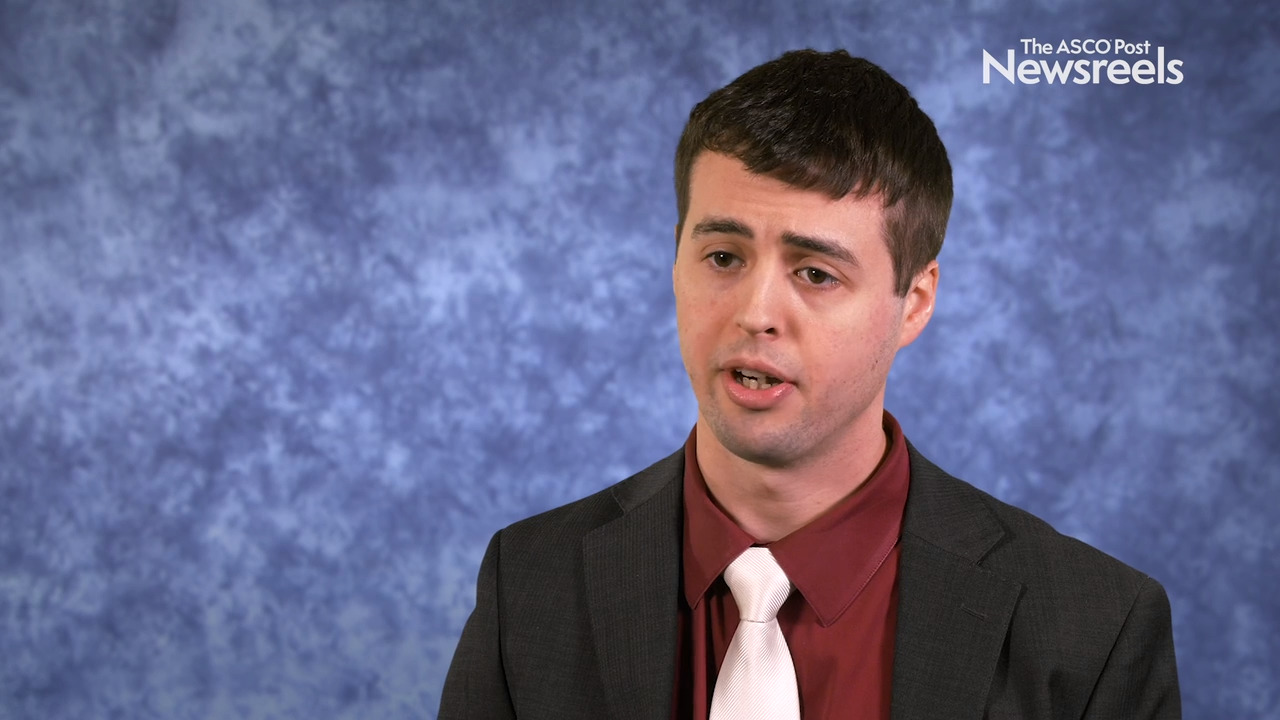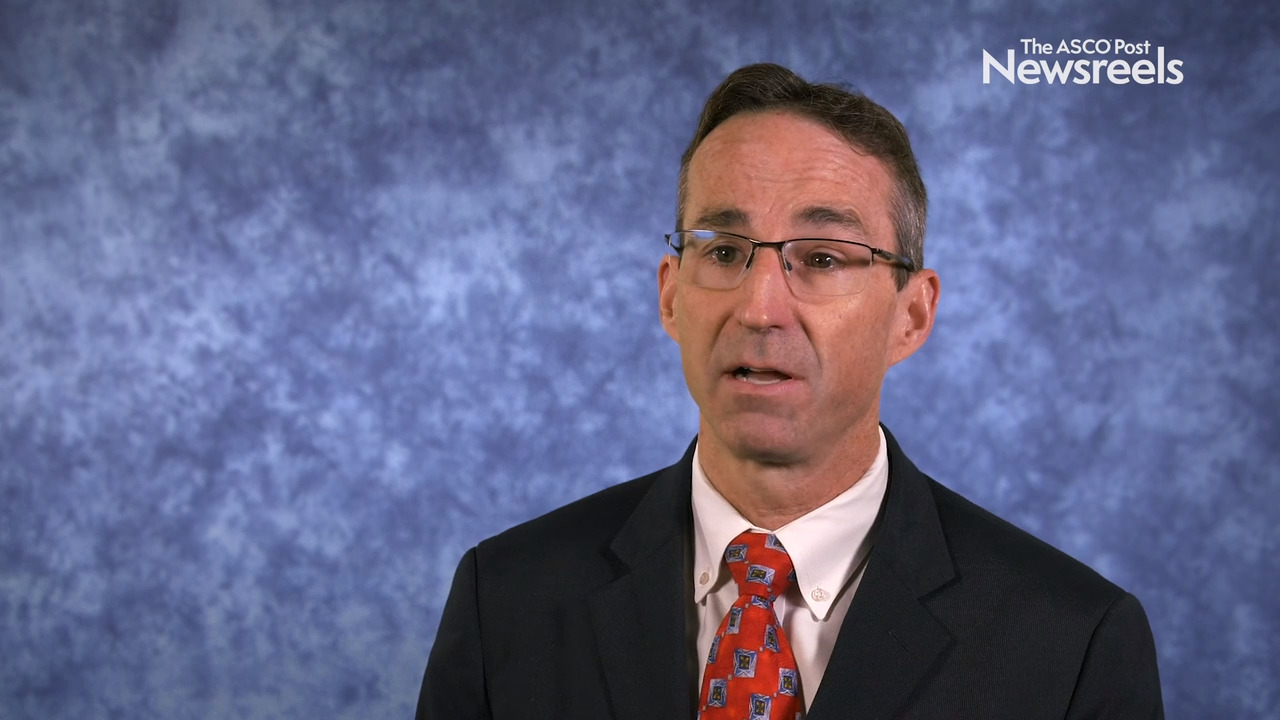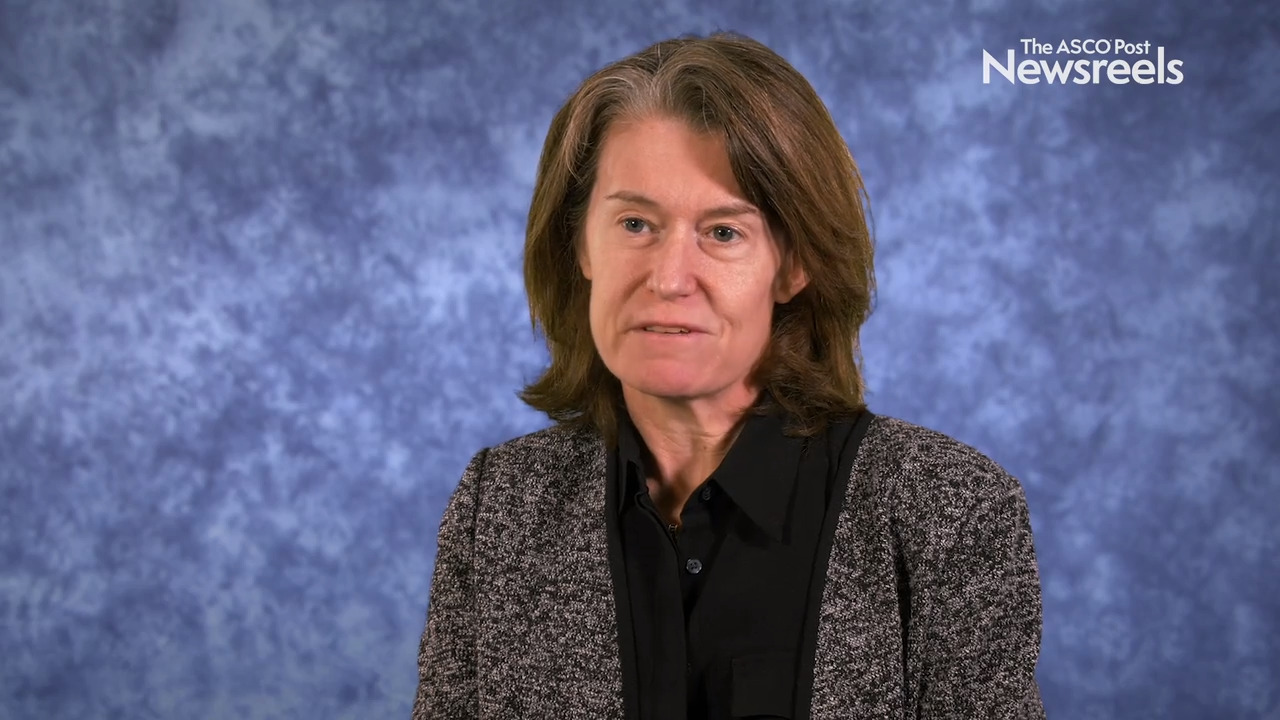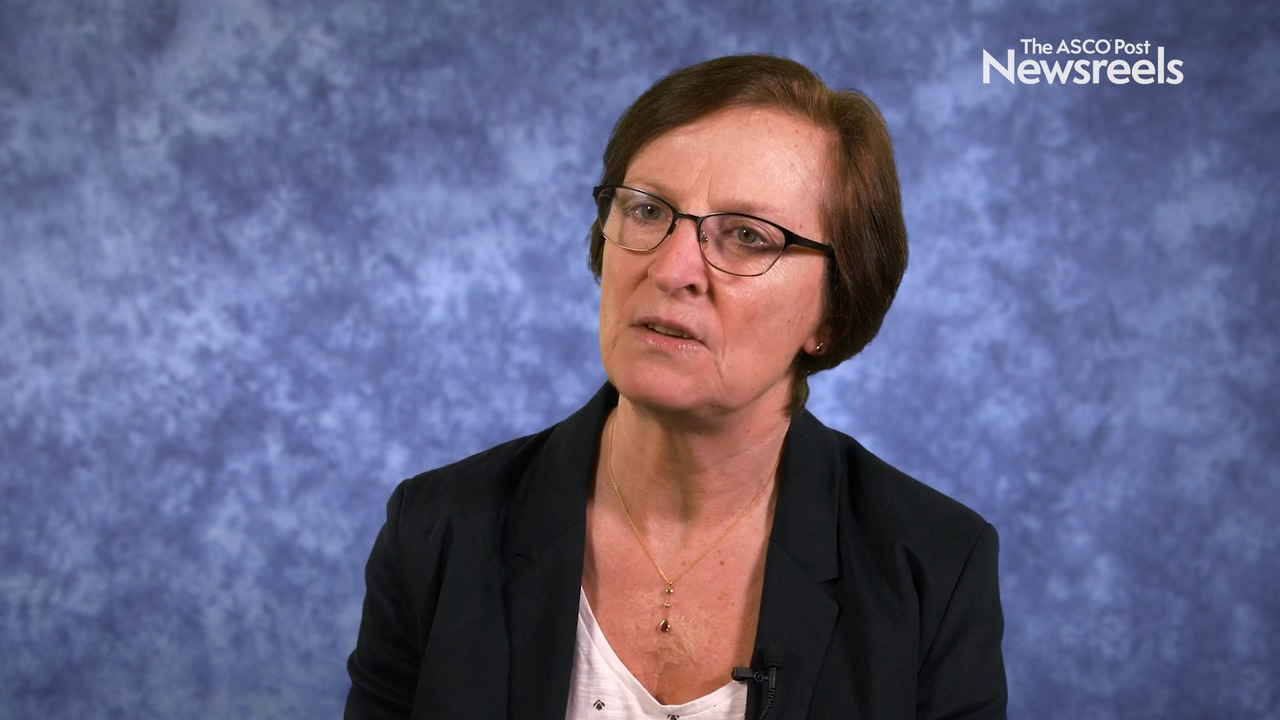Jacob J. Adashek, DO, on Immunoregulatory Molecules, Cancer Genes, and Therapeutic Insights
2020 ASCO-SITC Clinical Immuno-Oncology Symposium
Jacob J. Adashek, DO, of the University of South Florida and Moffitt Cancer Center, discusses data on combining immunoregulatory inhibition and targeted gene therapy, which may offer patients better outcomes (Abstract 10).
Luis I. Ruffolo, MD, of the University of Rochester, discusses preclinical studies showing that semaphorin 4D blockade may sensitize pancreatic tumors to chemoimmunotherapy combinations (Abstract 26).
Jarrett Failing, MD, of the Mayo Clinic, discusses his study data, which show some agreement between the expression of human leukocyte antigens in primary non–small cell lung cancer with brain metastasis. His findings may have some bearing on resistance to immune checkpoint inhibitors (Abstract 43).
Martin McCarter, MD, of the University of Colorado Denver, discusses the recent strides in surgical oncology, how the role of surgery has changed, and what lies ahead for this staple of cancer therapy.
Elizabeth A. Mittendorf, MD, PhD, of Dana-Farber Cancer Institute and Brigham and Women’s Hospital, summarizes a session she co-chaired on utilizing the immune system in neoadjuvant trials to treat melanoma, breast, and lung cancers.
Philippa G. Corrie, PhD, of Cambridge University Hospitals NHS Foundation Trust, discusses a review of 2,322 patients with metastatic melanoma receiving first-line immune checkpoint inhibitors as standard of care in England between 2014 and 2018 (Abstract 55).
